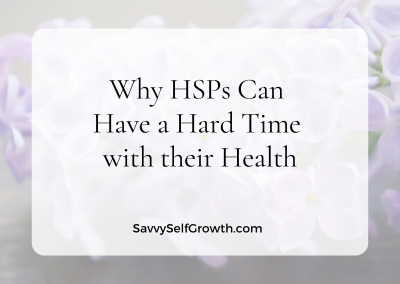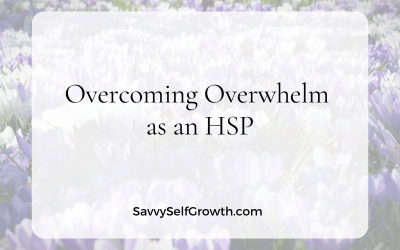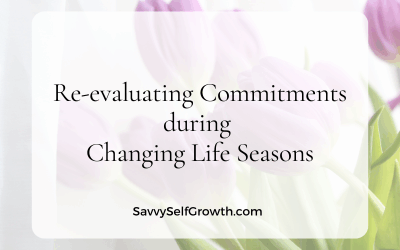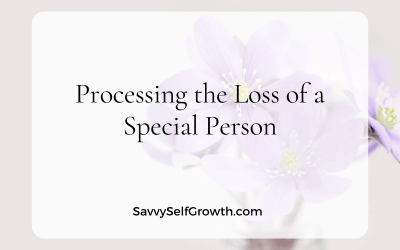“For a Highly Sensitive Person, a drizzle feels like a monsoon.”
– Anonymous –
Over the years, as I was dealing with my own health and pain issues, I’ve had the opportunity to learn about the intersection of being Highly Sensitive, health, and pain.
In 2021, I fell/slid down 10 stairs on my coccyx and bum. Ouch, was that painful! I can’t even begin to describe the searing pain of the actual event, and then the pain that lingered for 8 months.
As a result of that experience, I started exploring the latest research on the experience of pain, how it is caused in the body, and what keeps it in place.
Tissue damage
When the body has tissue damage, it usually heals within 12 weeks and all pain should be resolved.
After 12 weeks, we start talking about ‘chronic pain’. This is where things get interesting! Because now we’re no longer dealing with tissue damage. The remnants live on in different places in our nervous system. And the medical profession has a really hard time knowing what to do with that.
I’ve also dealt with many other health issues (relentless stomach issues for 2 years despite being on medication, liver duct trouble, IBS, jaw clenching so bad that I had Botox injections, and awful health anxiety). I’m intimately familiar with all the stress that goes along with a health issue if you’re a sensitive soul.
Several lenses for health issues and pain
Nowadays, I look at health issues and pain through several lenses. They each add some understanding and depth.
- personal experience,
- pain science, and
2 certifications I’ve done…
- Meta Consciousness (an analysis tool to help us understand and resolve health issues) and
- OldPain2Go (a method to release pain that no longer serve a purpose)
Today I want to write about health (which includes pain) and why HSPs can have such hard time with that.
First, what’s an HSP, and why does it matter in a Health Context?
If you’re not sure what an HSP is, read the article about What an HSP is and why that matters. In brief, it’s a person who processes all inputs from their senses in a deeper, more intense way than those who are ‘non-sensitive’. About 30% of the population falls into the sensitive category, and it’s nothing to be ashamed of!
The Pain Cycle
I’ve written a separate article about the pain experience for HSPs and a brief quote from it:
“Our nervous systems are sensitive to start with, therefore pain and discomfort affect us quicker and more often. Then, additional layers happen. Because we’re affected more easily, we become even more sensitive to pain or discomfort.”
This is not only true for the experience of pain, but for all health conditions an HSP might experience.
When we notice the symptoms of that condition (whether it be a stomach ulcer, a gallbladder stone, anxiety and dread, heart palpitations, a skin rash, IBS), we have a stronger experience of the symptom than non-sensitive people.
Think of the quote above: for an HSP, a drizzle can feel like a monsoon.
Safety
That can lead to more intense emotions (like fear, dread, anxiety, sadness, disappointment, anger). Together, this can lead to more intense experiences like panic attacks… which then really gives us the sense that ‘something is horribly wrong’ — and makes us feel even more unsafe.
Feeling unsafe results in the brain sending out ‘warning signals’, which creates more pain … and so, the cycle continues. I described this pain cycle in more depth in the article, including what keeps it in place.
Intelligence in our Body and our Symptoms
As a Meta Consciousness Analysis Coach, I teach my clients that our bodies simply never make mistakes. There is an intelligent, wise, bio-logical reason for every symptom that we have.
We’re not taught this in Western Medicine, which views the body as a mechanical piece of equipment. They see every part as separate from the rest, with no connection to other parts.
However, when we learn the language of the body and what it’s trying to tell us when we encounter symptoms, we can begin to understand why our discomfort (symptoms, illness) happens. As a result, we can create the conditions for our body to return to balance.
It all starts with a stressful event
The Meta Consciousness model teaches that behind every symptom is a stressful event that sets off a bio-logical response in the body. This would not be just any stressful event, but a particularly stressful one with 4 elements, with the acronym UDIN.
U = Unexpected (came out of the blue, took us by surprise)
D = Dramatic (high emotion of any kind, shocking)
I = Isolating (felt alone or isolated during, even though there may have been people around)
N — No strategy to deal with it (a deer in the headlights… I just don’t know how to handle this situation)
So when a UDIN moment comes along, it ‘hits’ our system in 3 different places: a spot in our brain (visible on a CT scan taken in a particular way), an organ of the bodym related to that spot in the brain (example liver, skin, muscle, blood), and our psyche. Our body immediately sets off a special biological program that will help the affected organ to deal more efficiently with this particular stress and help us to survive.
Does a particular stress affect everyone the same?
Each person who experiences the same event will react uniquely, due to their past programming. If 10 people experience the exact same event, there might be 10 different reactions.
In Meta Consciousness, every organ in the body has been mapped to a specific type of stress that will affect it. Each organ will respond in a specific way (by either cell loss, or cell growth) to help the organism (you) get through the period of stress to survive. Cell loss or cell growth in that organ will help it in specific ways, to do its job better.
(Please note I’m not attempting to explain the whole system here, since there is a lot of detail to it!)
Let’s go back to one event affecting 10 people. For some, the event might affect their health (because this event will have prompted a UDIN moment). While for others, the same set of circumstances will not be a UDIN. The reason can be traced back to many factors, including your childhood programming, the state of your nervous system, whether you’re an HSP who experiences more intensity, and much more.
An example: Job loss
As an example, let’s say 10 people received the news that they’ve lost their job, with a few months’ salary upfront. (Apologies if this is triggering, I know this is a reality for many at the moment. Please do get support if it’s you! Reach out to me, I have many free resources.)
Some people might experience the job loss as a kind of relief (“Yay, I was planning to resign anyway”). For others, this would be a total shock, out of the blue, they have no idea what to do with this or what the future will look like now, and there’s all sorts of emotions around it. And there we have a UDIN moment.
Here are some different (and not the only) ways in which people could respond:
- Fear of not being able to provide security for their family anymore: affecting the liver parenchyma.
- Trying to ‘swallow’ the news but unsuccessfully: affecting a part of the oesophagus.
- Anger about their territory (job) being affected: affecting a part of the stomach, or gallbladder, or gallbladder ducts in the liver.
- Fear because their territory (job) has been ‘invaded’: affecting parts of the lung (bronchi), and possibly the bronchial muscles if they’re feeling stuck in the situation.
- There are more possibilities, these are just a few examples.
Yes, we can be that specific with a Meta Consciousness Analysis together with a medical diagnosis.
How our health can have extra knocks as an HSP
As I’ve noted before: If you’re an HSP, you’re more likely to be impacted by stressful or ‘negative’ input (a UDIN) than a non-sensitive person. (That comes with the territory, my dear sensitive friend, and there’s also good news which I’ll share later.)
I’ve seen it over and over with my sensitive clients. They experience all the aspects of a stressful event in more depth, with more details, which then has a big impact on their nervous system — and health!
This is especially true if a sensitive soul had a stressful childhood, and if their parents did not understand their nervous system make-up.
They would very likely have received negative feedback about their ‘too sensitive’ reactions to normal childhood events like children’s parties, sibling rivalry, a shouting parent, an angry teacher, someone making fun of them… and yes, then their nervous system feels unsafe in the world, not okay to be themselves, which starts creating even more triggers… and then later in life a smaller, seemingly insignificant event can tip them over the edge of the “stress-berg”.
Couple all that pre-programming in the psyche with a physical nervous system which feels every small symptom (inside and outside of the body) with more intensity — and we often have the recipe for health or medical anxiety and a whole lot of panic about a health condition.
Does this resonate or sound familiar?
If it does, you have my fullest and deepest empathy. I know exactly how this feels, having experienced multiple layers of this personally.
What can you do about this difficult cycle as an HSP?
I would like to offer 6 points as support — and all these are valid for HSPs and non-HSPs.
#1: Start with empathy and compassion.
Acknowledge how hard it’s been with all the above factors at play. Give yourself some compassion for the road you’ve walked. You deserve to be your own best friend.
#2: Your body has incredible wisdom.
Take heart from this article. We can learn to understand what the body is trying to communicate with every type of dis-ease or symptom. It’s not as murky as you’ve always had to believe. Medical science doesn’t have all the answers — they look in one place (the mechanics of the body) and forget that we cannot separate mind, body and psyche. I’m not making them bad, I’ve been incredibly grateful for medical science. Yet every system has its limitations.
#3: Free support.
As a first (free) step, during 2025 (and perhaps beyond), I’m hosting a free group Meta Consciousness Q&A every last Monday of odd months (E.g. March, May). The link to sign up is here. We cannot solve the whole issue during our 90 minutes together, and yet you’ll receive an understanding of your body’s innate wisdom, and pointers about your ailment.
#4: Paid customised support.
To start understanding the pain cycle in more depth, have a peek at my affordable recorded class here.
If you’re ready for a customised session, I’d highly recommend a personalised Meta Consciousness Analysis. I offer these as a stand-alone, or as part of a Health Journey for HSPs. It’s incredibly relieving to discover what your body is trying to do FOR you. It’s never our enemy. If we understand the bio-logical reasons for the symptoms, we can have hope, compassion and a path ahead. Contact me for a free discussion.
#5: Use EFT to reduce stress.
Start using EFT (tapping) to support you with all the stress around your health. Especially if you’re an HSP, your nervous system needs to feel calmer, more centred, and get out of the Fight-Fight-Freeze response.
If you’re not sure how, here are free resources:
• I have multiple videos on Youtube where you can follow along
• EFT Articles on my website to help you with various questions around it
• A mini EFT course for purchase that’ll teach you all the basics.
#6: Great news if you’re an HSP!
The best for last. Earlier, I mentioned that we respond more intensely to both ‘negative’ and ‘positive’ input! That means even if you’re in a pickle right now with your health, and things feel insurmountable, do not despair.
With positive, nurturing, encouraging support, you can get right out of it and work towards balance, health and beautiful wellbeing again!
Please do reach out if you are struggling with a health issue. There’s no need to keep soldiering on by yourself. Help and healing are both available.




